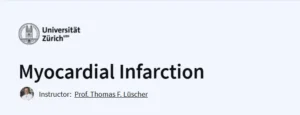What will you learn in this Schizophrenia Course
Understand the key symptomatic features of schizophrenia through simulated interviews.
Explore the neuroscience of schizophrenia, including findings from MRI and fMRI studies.
Examine psychological theories related to cognition, emotion, and behavior in schizophrenia.
Learn about evidence-based somatic and psychosocial treatment approaches.
Gain insight into the historical development of the schizophrenia diagnosis.
Program Overview
1. An Introduction to the Disorder
⏳ 48 minutes
Introduction to schizophrenia’s key symptoms, prevalence, etiology, and an overview of its neuroscience.
2. Symptom Assessment and History
⏳ 1 hour
Exploration of symptoms through client-clinician simulations and a look into the history of schizophrenia treatment
3. Neuroanatomy and Neuroimaging
⏳ 47 minutes
Discussion on neurochemistry, structural and functional brain imaging findings in schizophrenia.
4. Psychological Science
⏳ 1 hour
Examination of cognitive deficits, social cognition, and psychological models of schizophrenia.
5. Intervention
⏳ 1 hour
Overview of pharmacologic and psychosocial treatment approaches, including recovery-oriented practices.
Get certificate
Job Outlook
Beneficial for roles in mental health services, psychology, psychiatry, and social work.
Applicable in healthcare, research, and community support settings.
Enhances understanding of schizophrenia for professionals and caregivers.
Supports career advancement in mental health education and advocacy.
Specification: Schizophrenia
|
FAQs
- A basic understanding of psychology or neuroscience is helpful.
- Absolute beginners may find some sections challenging.
- The course provides context but assumes familiarity with mental health concepts.
- Recommended for students or professionals in health-related fields.
- Self-learners without prior knowledge can still gain value with extra effort.
- Focuses on theory, neuroscience, and psychological concepts.
- Simulated interviews illustrate symptom assessment but are not hands-on clinical training.
- Prepares learners for understanding, not direct patient care.
- Complements formal clinical education for healthcare professionals.
- Useful for educators, caregivers, and mental health advocates.
- Includes recent findings from MRI and fMRI studies.
- Explains evidence-based somatic and psychosocial treatments.
- Provides historical context alongside modern approaches.
- May not include every cutting-edge experimental therapy.
- Serves as a solid foundation for further advanced study.
- Enhances understanding of schizophrenia for social work practice.
- Useful for educators to support students with mental health challenges.
- Helps in community outreach, advocacy, and research roles.
- Improves ability to recognize symptoms and communicate effectively.
- Broadens career applicability beyond clinical psychology.
- Total course duration is around 4–5 hours.
- Suggested to break into multiple sessions for better retention.
- Simulated interviews and exercises may require extra review time.
- Daily or weekly study plans improve comprehension.
- Flexible pacing is possible due to lifetime access.





